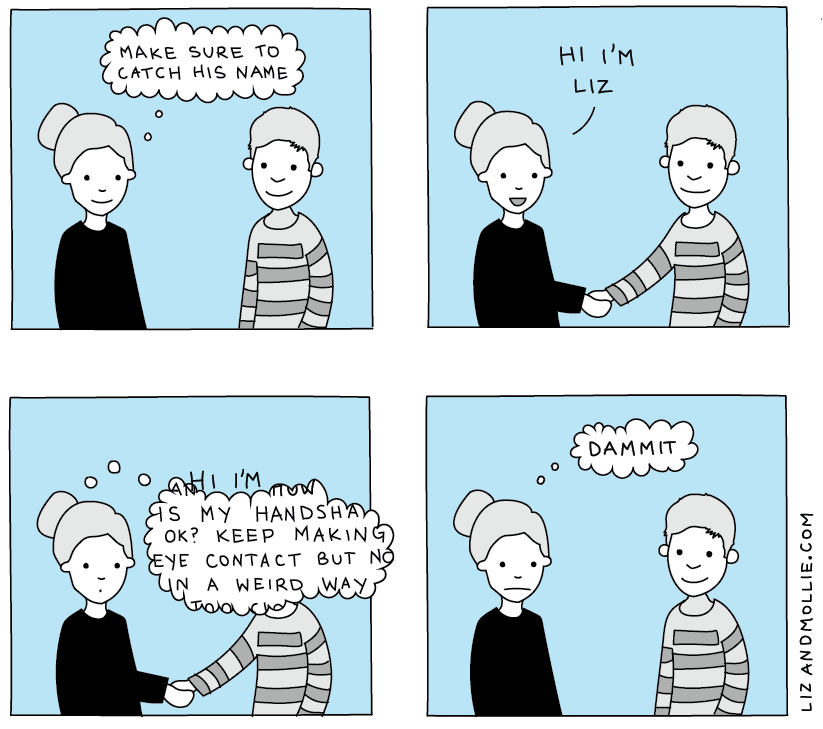🗣 The Power of Deep Conversations
Deep discussion boosts social connection and isn't as awkward as you think
Small talk is a great way to express jovial politeness with passing strangers, but it often dominates longer social encounters too. Even when we have time for deeper chat with strangers or acquaintances, we tend to drift toward an abundance of weather-related complaints or “how’s the family?” chat. This isn’t the most rewarding type of conversation. Better value usually comes from revealing how we think, feel, and enjoy life, but most of us hesitate to talk on such a personal level.
Small talk isn’t useless; it’s a pleasant social lubricant in brief interactions with strangers. But we may be spending too much time on small talk purely because we fear awkwardness. New research is showing that deep conversations make people feel more connected, but we shy away from them because we wrongly expect them to be uncomfortable.

🙊 Don’t shy away from deep conversations
In a recent study, a group of US researchers tested how people’s expectations of deep conversations matched up to reality. They started by recruiting pairs of strangers and giving them a few deep conversation starters:
“For what in your life do you feel most grateful?”
“If you could undo one mistake you have made in your life, what would it be and why would you undo it?”
“If you were going to become a close friend with the other participant, please share what would be important for him or her to know.”
“Can you describe a time you cried in front of another person?”
They asked everyone to rate how awkward, happy, socially bonding, and interesting they expected the conversations to be. They also asked each person how much they expected their conversational partner to be interested in what they were saying. After the strangers then chatted for ten minutes, the researchers repeated these measures to see how people actually felt about the chat.
The outcome measures showed that people consistently underestimated how interesting they’d find a conversation, and they more extremely underestimated their partner’s interest in the conversation. In fact, every outcome the researchers measured exceeded people’s pessimistic expectations. People found the conversations less awkward, more happy, and more socially bonding than they expected them to be. The graph I made below shows the approximate ratings for each emotional outcome averaged across 2-3 iterations of the experiment.
At the end of the experiment, people didn’t care much about introducing more small talk into their life. But they did express regret about how few deep conversations they could recall, and they wanted to enjoy more of them going forward.
In further experiments, the researchers used a similar design but directly pitted deep conversations against shallow conversations. They gave some groups of people shallow conversation starters including “What do you think about the weather today?” and “How is your day going so far?”, while giving other groups of people deep conversation starters like those previously listed.
People overestimated the awkwardness of deep conversations more than they overestimated the awkwardness of shallow conversations. After chatting, they also felt more socially connected to deep conversational partners than shallow conversational partners. In one set of experiments, people expected shallow conversations to make them just as happy as deep conversations, but they ultimately felt happier following deeper conversations.
Results were a little conflicting when comparing across all seven experiments in the paper. For example, in some experiments, people most strongly underestimated how happy they would feel following shallow conversations rather than deep conversations. This is because their expectations for shallow conversations were very low, and even small talk with other people can make us feel surprisingly refreshed and upbeat.
Overall though, people were consistently more worried about the awkwardness of deep rather than shallow conversations despite gaining more social connection from deeper conversations. People have a misplaced fear of penetrating chat that hinders their ability to build meaningful connections with others.
⭐️ Takeaway tips
Engage in friendly chat with passing strangers: Small talk takes very little effort but produces disproportionate bumps in joy. There isn’t much meaning in talking about the weather or a person’s day, but even limited communication lifts spirits because we thrive on social connection. Whether you’re joining someone in an elevator, ordering coffee from a barista, or waiting in line at a movie theater, don’t hesitate to ask how another person’s day is going.
Start deeper conversations when you can: Make the most of opportunities to start meaningful conversations with others. Fears of awkwardness rarely come to fruition, and you’re more likely to strengthen some worthwhile social ties. Political chat can be a little risky depending on who you’re talking to, but politics isn’t the only deep topic to discuss. As the experiments above showed, deep conversations can be struck up by talking about gratitude, regrets, fears, and personal philosophies.
People care more about your thoughts than you think they do: Data shows that many of us underestimate how interested other people are in what we have to say, and this can prevent us from starting valuable conversations with others. Awareness of this bias is a good first step toward countering it when it enters your mind. If you ever think “this person probably doesn’t care what I have to say”, it’s likely you’re being unfair to yourself. Feel free to explore interesting conversational territory rather than trying to preempt what another person may be thinking about you. You can always change course if you need to.
💡 A final quote
“Discourse, the sweeter banquet of the mind.”
~ Homer
❤️ If you enjoyed this, please share it with a few friends. If you’re new here, sign up below or visit erman.substack.com
📬 I love to hear from readers. Reach out any time with comments or questions.
👋 Until next time,
Erman Misirlisoy, PhD




